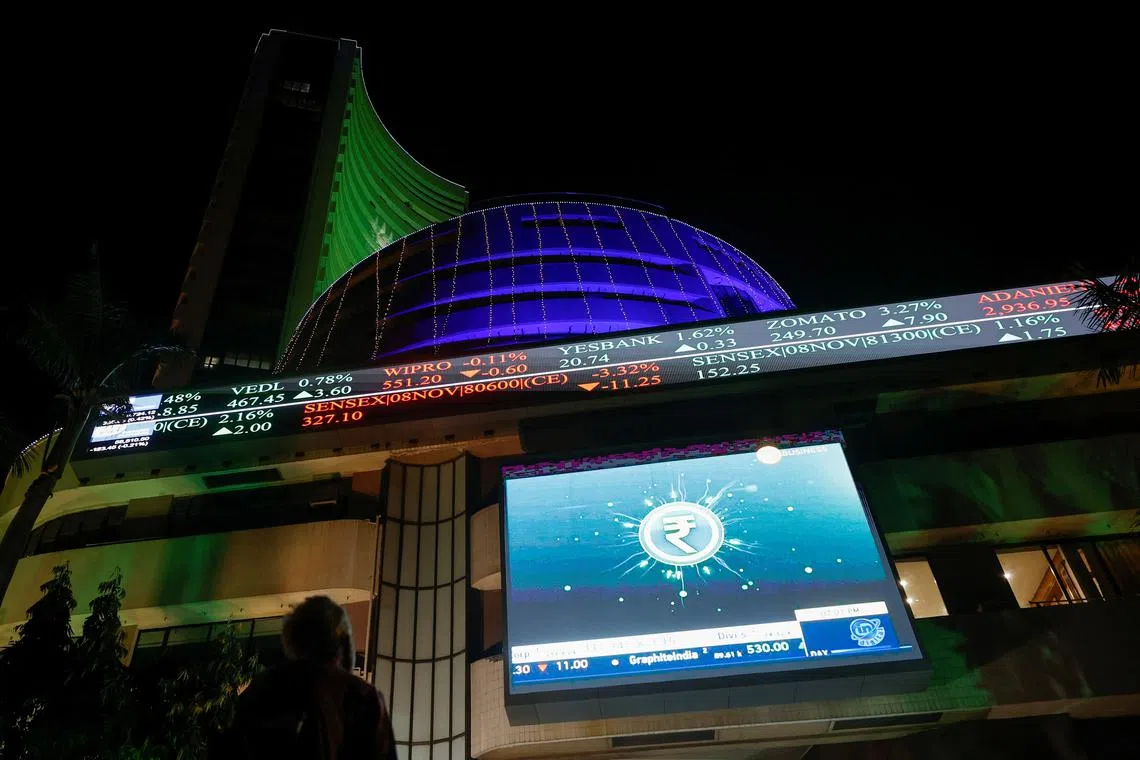India again bans ex-broker who triggered 2001 stock market crash
Sign up now: Get ST's newsletters delivered to your inbox

The move against former stock broker Ketan Parekh comes amid a rise in front-running cases in the country just as its stock market is booming.
PHOTO: REUTERS
Follow topic:
Mumbai – Former stock broker Ketan Parekh, who shook India’s stock market at the turn of the century in one of the worst financial scandals in its history, has been banned by the securities market regulator, this time for allegedly front-running trades of a US-based fund.
The Securities and Exchange Board of India (Sebi) on Jan 2 prohibited Mr Parekh and others from buying and selling securities, as well as associating with any entity registered with the regulator, an order published on Sebi’s website showed.
The regulator investigated trades undertaken by individuals and brokers associated with Mr Parekh over a two-year period ending June 2023, the order said.
Sebi’s investigation showed that Mr Parekh allegedly obtained non-public information of a major US fund’s trades from Singapore-based Mr Rohit Salgaocar, who had an agreement to refer trades of that fund to Motilal Oswal Financial Services and Nuvama Wealth Management. Mr Parekh then passed on the information to his associates to front run the trades, Sebi member Kamlesh Varshney said in the order.
Mr Parekh was earlier banned by Sebi in 2003 for 14 years for insider trading, price rigging and illegal diversion of bank funds into the stock market.
His actions triggered a crash in India’s stock market during February and March 2001. Sebi’s latest move against Mr Parekh comes amid a rise in front-running cases in the country just as its stock market is booming.
Mr Varshney has also ordered the impounding of about 658 million rupees (S$10.5 million) in “unlawful gains” made by the entities allegedly involved in the scam. Mr Parekh and 21 others named in the Sebi order have been given 21 days to respond to the findings. BLOOMBERG

